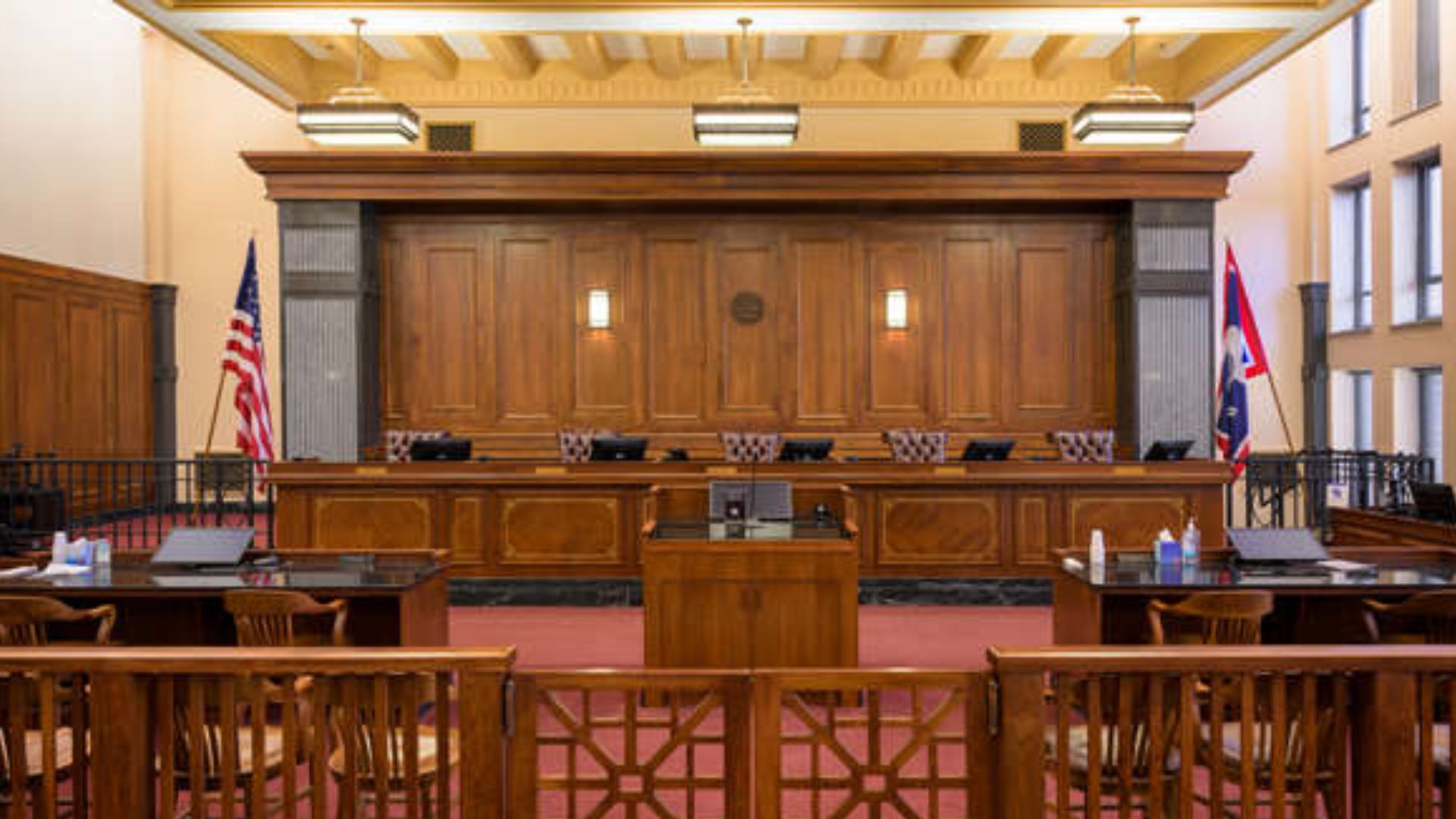Indianapolis, Indiana – The Indiana Supreme Court will soon take its work on the road, bringing one of its cases before a Jefferson County audience. On Tuesday, September 30, the state’s highest court will convene at Hanover College to hear oral arguments in a case that could shape how technology fits into constitutional rights.
The case, Ajaylan M. Shabazz v. State of Indiana (25S-CR-183), asks whether testimony delivered by Zoom satisfies the Indiana Constitution’s requirement that defendants have the right to meet witnesses “face-to-face.” The question has taken on new relevance since the COVID-19 pandemic, when courts across the country turned to video platforms to keep proceedings moving while limiting health risks. Now, Indiana’s justices will weigh whether those practices align with constitutional protections.
The argument is set for 10:00 a.m. in Hanover College’s Collier Arena, located at 100 Scenic Drive in Hanover. Proceedings are scheduled to last about 40 minutes and are open to the public and the press. Seating will be limited and offered on a first-come, first-served basis. Attendees will enter through the east doors of the Horner Center, where security will be in place. Parking for visitors is available just north of the Horner Center.
Holding arguments outside the Statehouse is not unusual for Indiana’s Supreme Court. While most hearings occur in Indianapolis, the justices occasionally travel across the state to make the judicial process more accessible to students, local residents, and members of the press. This time, Jefferson County will host the Court in what promises to be both a legal lesson and a civic event.
More than 700 students from a wide range of schools are expected to attend. The list includes Hanover College, Ivy Tech Community College’s Madison Campus, Jeffersonville High School, Jennings County High School, Madison Consolidated High School, Milan High School, South Ripley High School, Southwestern High School, Switzerland County High School, and several others. Even middle schools such as Jac-Cen-Del MS/HS and New Washington Middle/High School will send groups, providing young students with a rare chance to see the state’s highest court in action.
For many, the opportunity to watch lawyers present arguments before the justices and then see the judges question them directly will serve as a valuable lesson in how constitutional law is debated and interpreted. Traveling arguments have become a tradition aimed at sparking civic interest and offering transparency into judicial work that is often confined to the Statehouse.
The press will also be allowed to cover the event, with opportunities to photograph and videotape the proceedings. To attend, media outlets must register in advance by contacting Sarah Kidwell at the Indiana Supreme Court by Friday, September 19, at noon. Rules will be in place to maintain decorum, and adjustments will be made to accommodate the unique setting at Hanover College.
For those who cannot attend in person, the oral argument will be streamed live and later archived on the Court’s official website, ensuring wider access. Collier Arena itself is fully accessible, with designated parking and accommodations available for individuals with disabilities. Those requiring special assistance are encouraged to contact the Court in advance.
Beyond the logistics, the Shabazz case raises fundamental questions about modern trials. The central issue—whether video testimony counts as meeting a witness face-to-face—touches both on legal tradition and on how new technology is reshaping long-standing processes. Observers say the justices’ decision could have significant implications for trial courts across Indiana, especially as remote communication becomes increasingly common.
For Jefferson County and Hanover College, however, September 30 will be about more than the legal debate. It will also be a day when the community gets a close look at how justice is carried out at the state’s highest level, reinforcing the idea that the courtroom is not only a place for lawyers and judges but also a forum where the public can witness democracy in action.









